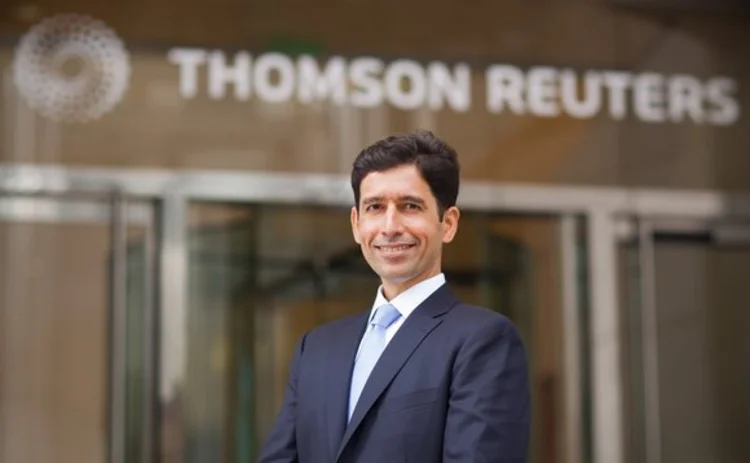Thomson Reuters Looks to Grow APAC Footprint for AML/KYC
Compliance talent is thin in the region, hence why firms are looking to vendors for help.

According to Sanjeev Chatrath, managing director for financial & risk, Asia Pacific, at Thomson Reuters, Hong Kong- and Singapore-based financial institutions spend an average of $80 million and $38 million, respectively, on KYC and due diligence processes.
He tells WatersTechnology these costs are created from technology challenges, ongoing regulatory KYC obligations that vary from country to country, which also requires ongoing monitoring, availability of data, as well as the ultimate beneficial ownership.
Another factor affecting onboarding costs is the shortage of compliance talent.
"The demand for AML and KYC experts is high but the number of competent professionals in Asia is still low and organizations are in constant competition for the best talent. Four out of 10 financial institutions in Asia-Pacific reported that they lacked the necessary skilled resources to implement KYC-related changes effectively," he says.
This is helping to drive demand for firms like Thomson Reuters, he adds. "That said, regulators expect entities to embrace technology more effectively in order to drive automation. Leveraging smart systems and quality data is therefore an absolute integral part to cope with the requirements and ensure transparency and accountability," Chatrath says.
Tencent subsidiary Money Data recently chose Thomson Reuters to implement TR's World-Check Risk Intelligence web and software solutions to assist in Money Data's AML/KYC workflow. This is to help it comply with Hong Kong Monetary Authority (HKMA) requirements as part of being a stored value facilities (SVF) licensee. In August, Money Data was among five companies that were granted a SVF license by the HKMA.
World-Check is a structured database of politically-exposed persons and heightened risk individuals and organizations, globally. It helps identify threats as well as comply with legislation and regulations for preventing money laundering, terrorist financing, corruption, organized crime and third-party risk.
Only users who have a paid subscription or are part of a corporate subscription are able to print or copy content.
To access these options, along with all other subscription benefits, please contact info@waterstechnology.com or view our subscription options here: https://subscriptions.waterstechnology.com/subscribe
You are currently unable to print this content. Please contact info@waterstechnology.com to find out more.
You are currently unable to copy this content. Please contact info@waterstechnology.com to find out more.
Copyright Infopro Digital Limited. All rights reserved.
As outlined in our terms and conditions, https://www.infopro-digital.com/terms-and-conditions/subscriptions/ (point 2.4), printing is limited to a single copy.
If you would like to purchase additional rights please email info@waterstechnology.com
Copyright Infopro Digital Limited. All rights reserved.
You may share this content using our article tools. As outlined in our terms and conditions, https://www.infopro-digital.com/terms-and-conditions/subscriptions/ (clause 2.4), an Authorised User may only make one copy of the materials for their own personal use. You must also comply with the restrictions in clause 2.5.
If you would like to purchase additional rights please email info@waterstechnology.com
More on Regulation
ICE to seek tokenization approval from SEC under existing federal laws
CEO Jeff Sprecher says the new NYSE tokenization initiative is not dependent on the passage of the US Clarity Act.
Why UPIs could spell goodbye for OTC-Isins
Critics warn UK will miss opportunity to simplify transaction reporting if it spurns UPI.
Re-examining Big Tech’s influence over the capital markets
Waters Wrap: A few years ago, it seemed the big cloud providers were positioning themselves to dominate the capital markets tech scene. And then came ChatGPT.
Pressure mounts on Asia to fall in line for T+1
With the US already on a T+1 settlement cycle, and the UK and EU preparing for the shift in 2027, there’s pressure for Asia to follow suit. But moving may involve more risks than expected.
Brokers must shift HFT servers after China colocation ban
New exchange guidance drives rush for “proximity colo” in nearby datacenters.
Banks split over AI risk management
Model teams hold the reins, but some argue AI is an enterprise risk.
New EBA taxonomy could help banks track AI risk
Extra loss flags will allow banks to track transversal risks like geopolitics and AI, say experts.
Risk managers question US reach of Dora third-party list
Some EU subsidiaries included, but regulator control over cloud providers could still be limited.








